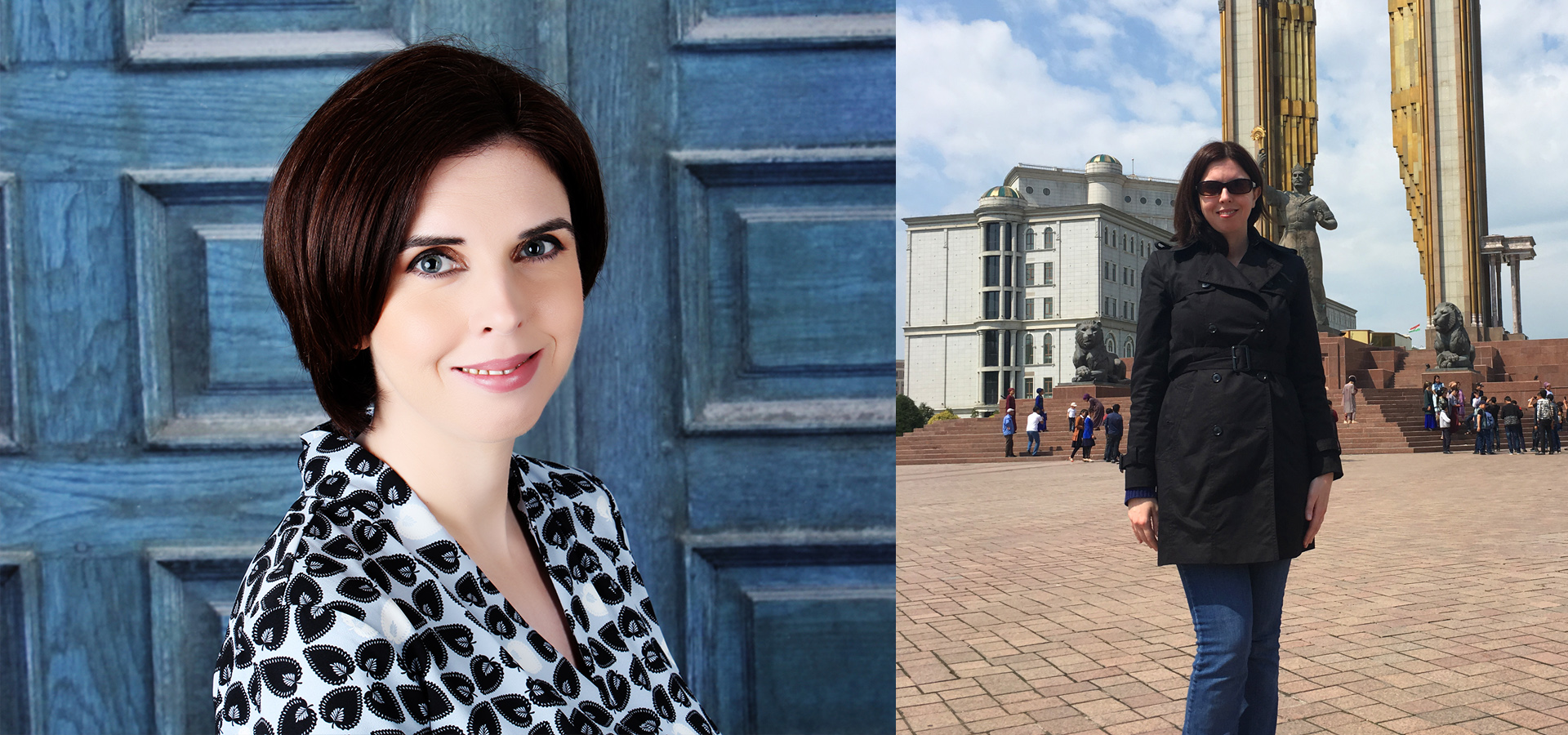

From the beginning of her career, Tara Ornstein was determined to travel and learn about the world, so as a CUNY undergrad in global history she took advantage of junior year abroad in Russia, January intersession in Morocco, and an exchange program in northern Russia for a public service project on HIV prevention. Along the way to her current position as a health science specialist at USAID, Tara has traveled to more than 60 countries, and picked up Spanish, Russian, and some Tajik. There’s no doubt that so far, Tara’s career is rooted in decidedly global soil.
But Tara describes her experience through more than a global lens: her dual interests in science and the humanities have influenced her choices, and her professional progress can be tracked by her love of both. As an example of her dual lens, Tara earned a second bachelor’s degree in environmental science. “I wanted to solidify my skills in hard science, and learn how to do environmental field assessments,” she said. Her love of humanities led her to accept a language fellowship through the U.S. Department of State’s Critical Language Scholarship program, which enabled her to study in Tajikistan. “I would encourage anyone to apply; it’s an opportunity to learn in an intensive program, with eight hours of language instruction every day.”
With Tara’s love of both arts and science, her experience in HIV prevention, and her knowledge of Tajik and Russian, an early stint at HealthRight International was a good fit: “I was able to use my language skills, but also gain experience in public health,” she said. It was also where she began working in tuberculosis prevention. “We worked with HIV, but TB was killing a lot of the people we served. So there was an opportunity to do research, and propose funding to do TB and HIV work with our partners in Russia, Ukraine and other countries.”
Two years later Tara became a technical officer at The International Union Against Tuberculosis and Lung Disease, which she describes as “the job where I came into my own.” She coordinated a five-year clinical trial that tested a standardized regimen for multi drug-resistant TB, replicating it in settings with different epidemiological profiles. “I traveled to different countries, meeting with partners and making a pitch for why this or that particular study might benefit their institution or setting.” Tara is proud of her success: “It was something I worked really hard on from start to finish, and the results of that survey contributed to guidelines on shortened regimens for drug-resistant forms of tuberculosis.”
It was during this pivotal time in Tara’s life that she chose to apply to NYU and pursue an MPH as a part-time student, taking classes at night. From a professional standpoint, the academic credential was important to her, but so was GPH’s reputation. “I applied because NYU was known for a rigorous academic program and a strong international aspect; it wasn't a quality every MPH program had. Back then, not every school valued how work experience contributes to the classroom, but GPH welcomed students with a worldview that comes from doing public health work, with experience they can share with their classmates, that benefits everyone.
At NYU doing the MPH, I really liked working and studying at the same time. I was with a cohort of people who, like me, had a career but wanted to learn more. It was helpful to be in that kind of environment, and the professors were great; they were very supportive of what we wanted to do.
Tara especially appreciated when her coursework related strongly to her fieldwork. For example, in her classes on global health management and epidemiology, they talked a lot about the TB epidemic in New York in the late 1980s. “I was little during the time,” Tara said, “But I remember it happening, and some of our faculty worked in the field back then; they were involved in the TB response. It was so cool to hear — ‘This is what worked, this didn't’ — in my own city.”
Balancing work and school was key for Tara. “In the classroom, stepping back and looking at my work was really energizing; it kept me going,” she said. “I took classes during the summer, and had a lot of support from professors who knew what I was interested in. They’d say ‘Hey Tara, did you see this new book that came out?’ Or ‘Did you see what Partners in Health is doing?’ It was an interesting time to be at NYU — as it is now, right? I can't imagine a better place to study public health.”
True to form, Tara is focusing again on science, taking courses in environmental health. “A lot of the new infections we see with TB have an environmental component; for example, miners and construction workers exposed to silica have an occupational risk. Another factor is countries facing food insecurity due to climate change, since undernutrition is a risk factor for TB.”
Tara is grateful for her role at USAID, the lead agency for global TB. “It’s different every day – I can have a morning conference call with colleagues in one part of the world, and later in the evening talk to a different group.” The worldwide community fighting TB is small, but their shared goal is clear and they are constantly in touch. “I work with so many talented people,” Tara says. “It’s really a partnership around the globe.”